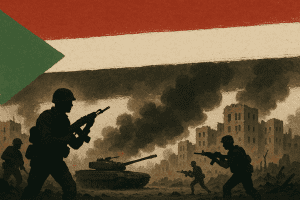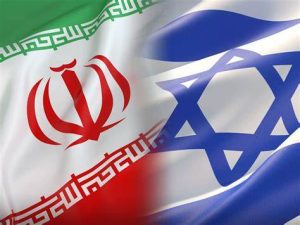Since April 2023, Sudan has witnessed a war in most of its states following the rebellion of the Rapid Support Forces militia against the state, after previously being part of the military institution. This conflict has resulted in widespread destruction of infrastructure, severe economic decline, and a major humanitarian crisis. However, the Sudanese Armed Forces, along with other regular forces and popular resistance, have achieved—and continue to achieve—decisive victories, enabling them to regain control over vast areas of the country and restore stability in conflict zones. These victories, won through heroic battles, have strengthened the position of the Sudanese army as a guardian of national sovereignty and revived hopes for building a stable state.
With the army regaining control, a new phase of reconstruction and development emerges, requiring an active role for Sudanese diplomacy in mobilizing international support, attracting investments, achieving national reconciliation, and enhancing Sudan’s global image. Many researchers believe that Sudanese diplomacy has a major and important role in the next stage despite the challenges it faces. These roles are:
First: Diplomacy as a Tool for Peace and National Reconciliation
National reconciliation is one of the key priorities after the war, as Sudan needs to overcome internal divisions and work toward genuine national unity. Here, Sudanese diplomacy plays a critical role in:
- Negotiating with internal parties: Strengthening dialogue between various political and societal components to ensure the participation of all groups in Sudan’s future.
- Building regional and international relations that support peace: Engaging with friendly countries and regional organizations, such as the African Union and the Arab League, to support reconciliation efforts.
- Promoting transitional justice: Collaborating with international organizations to ensure justice for victims and reintegrate armed groups into political life.
Second: Economic Diplomacy and Its Role in Reconstruction
Rebuilding Sudan’s economy and repairing its infrastructure are among the biggest challenges post-war, requiring diplomatic efforts to attract investments and international aid. This can be achieved through:
- Negotiating with international financial institutions: Working with the World Bank, the International Monetary Fund (IMF), and the African Development Bank, and others to secure funding and development aid.
- Attracting foreign investments and building economic partnerships: Offering incentives to global companies to invest in sectors such as agriculture, mining, and infrastructure.
- Enhancing trade relations: Opening new economic channels with neighboring countries and international partners to boost trade and Sudanese exports.
Third: Humanitarian Diplomacy and Supporting Displaced Persons and War Victims
After the war ends and the rebellion is defeated, Sudan must address the humanitarian crisis left in its wake. Sudanese diplomacy can play a key role in this area by:
- Coordinating with international organizations: Seeking aid from the United Nations, the Red Cross, and humanitarian organizations to assist those affected.
- Resettling displaced persons: Working to provide a safe environment for refugees and displaced individuals to return to their original communities.
- Ensuring social stability: Supporting programs that promote social cohesion among communities affected by the war.
Fourth: Strengthening Sudan’s Position on the International Stage
Sudan needs to improve its foreign relations and regain international trust after the war. This can be achieved through:
- Enhancing regional cooperation: Developing strategic partnerships with neighboring countries to ensure regional stability and security and engaging them as guarantors of Sudan’s political process during the reconstruction phase.
- Active participation in international organizations: Demonstrating Sudan’s commitment to international laws and treaties and working on improving its global image.
- Utilizing public diplomacy: Promoting investment opportunities and improving Sudan’s media image through various diplomatic channels.
Conclusion
Following the victories of the Sudanese Armed Forces and the restoration of stability, the next phase involves reconstruction, which heavily relies on Sudanese diplomacy. By building strong international relationships, attracting investments, and fostering national reconciliation, Sudan can achieve economic and political recovery and secure a stable and prosperous future for its people.




